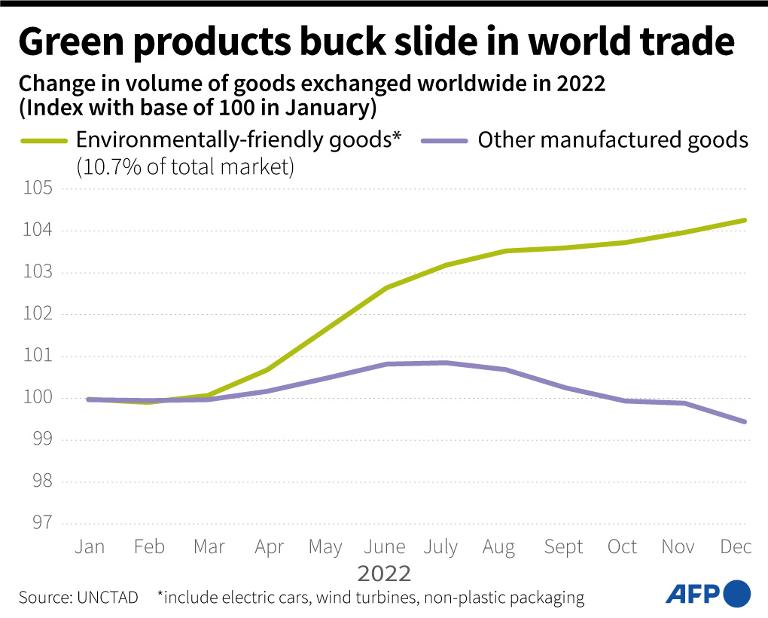Geneva, Switzerland — Environmentally friendly products like electric cars and wind turbines have bucked the current downward trend in overall global trade, continuing to show strong growth, the United Nations said Thursday.
Global trade surged to a record $32 trillion in 2022 before reversing course in the second half of the year amid deteriorating economic conditions and swelling uncertainties.
And global trade growth is expected to stagnate in the first half of this year, the UN’s trade and development agency UNCTAD said.
But in a brief report, it said that so far, trade in so-called “green goods” was bucking the trend.
“The silver lining was the strong performance of trade in “green goods”, whose growth held strong” throughout 2022, the agency said in a statement.
Green goods refer to products like electric cars or non-plastic packaging that are designed to use fewer resources or emit less pollution than their traditional counterparts.

Trade in such goods grew by around four percent in the second half of 2022, with their combined value hitting a record $1.9 trillion by the end of the year, UNCTAD said — over $100 billion more than in 2021.
Among the products that performed especially well were electric and hybrid vehicles, which saw trade surge 25 percent last year; non-plastic packaging, up 20 percent; and wind turbines, up 10 percent.
“This is good news for the planet,” Alessandro Nicita, one of the report’s authors, said in the statement. “These goods are key to protecting the environment and fighting climate change.”
The report comes just days after scientists delivered a “final warning” in the latest UN report on climate change, saying rising greenhouse gas emissions were sending the planet towards irreversible change.
UNCTAD said it expected green industries to boom further as countries scale up their efforts to cut emissions and battle global warming.
The agency said it expected the global market for electric cars, solar and wind energy, green hydrogen and dozens of other environmentally friendly technologies to reach $2.1 trillion by 2030 — four times their current value.








